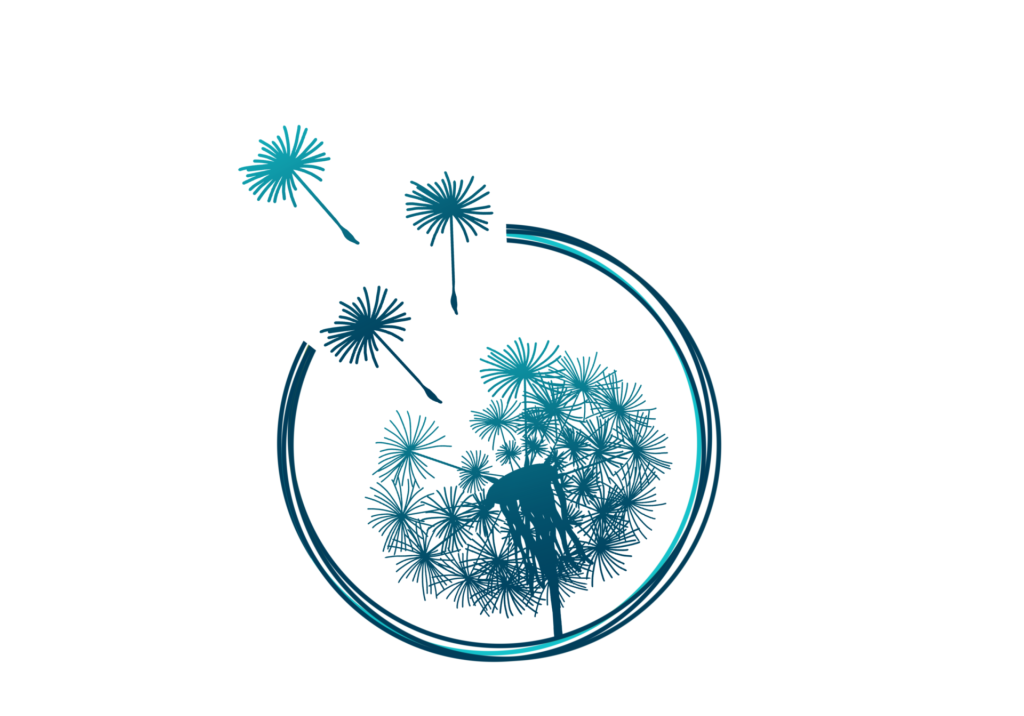Board Elections 2025
***Members can VOTE HERE***
Thank you for your participation in the 2025 Society for Disability Studies election. On this page, you will find the submitted profile images and answers to an interview that each candidate was asked to complete. On the ballot, you will be asked to provide selections for 1 president-elect, 1 treasurer, up to 6 at-large board members, and up to 3 graduate student representatives. Votes will be verified against emails associated with active SDS memberships and rendered anonymous for the purpose of tallying them. Votes must be submitted by July 25th at 11:59 PM EST.
President
Treasurer
Member-at-Large
- Ludovico Boratto
- Randy D. Colón, Ph.D
- Andrew Dell’Antonio
- Eric A. Deutsch, JD, PhD
- Emily Doffing
- Kim Fernandes
- Dr Eric Fishon
- Kelsey Henry
- Rachel McDonald Hurford
- April Johnson
- Katie Kinkopf
- Shirley Lin
- Essya M. Nabbali
- Junghun Oh
- Jiya Pandya
- Ramona Schwartz-Johnston
Graduate Student Representative
1. What is your experience with Critical Disability Studies, Disability Activism, Disability Justice, lived disability experience, or leadership within the disability?
2. What is your experience in nonprofit leadership and involvement, including but not limited to Board, committee, and conference involvement?
3. What do you hope to achieve on the SDS Board that you want membership to be aware of?
PRESIDENT
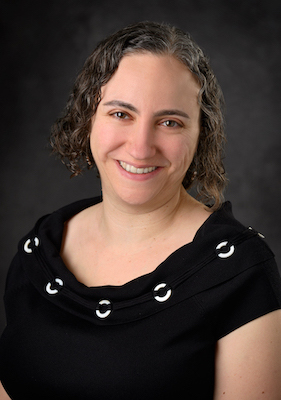
Juliette Hess, she/her
1. What is your experience with Critical Disability Studies, Disability Activism, Disability Justice, lived disability experience, or leadership within the disability?
I came to disability studies work as a mostly able-bodied person interested in justice and anti-oppression. Now as a multiply disabled person, I am grateful for the mindset that involvement in disability studies provided. I see disability studies as a site of radical imagining. As disabled people, we often must be creative, mostly due to ableism and inaccessibility. This creativity offers great potential at a dire political moment. My home discipline is music education and I have consistently centered disability studies in my career. I now teach one of the few disability studies courses housed in a U.S. music school. That course is now a permanent part of the curriculum. I have served on the organizing committee for the disability studies conference in music education which held its fourth conference in April 2025 and participated in a working group that successfully petitioned the International Society for Music Education to include a disability studies special interest group.
2. What is your experience in nonprofit leadership and involvement, including but not limited to Board, committee, and conference involvement?
I have served in various leadership positions in music education, which is my primary discipline. Of greatest relevance to this position, I am currently serving my 11th year on the Steering Committee of the MayDay Group which is the critical theory hub for music education. I am 5 years into my second 6-year elected term. I have mostly served as an at-large member, and served as chair of the organization for 2 years from 2022-2024. I have chaired organization committees for conferences multiple times and served in leadership roles in my field related to anti-oppression work. I am deeply invested in expanding my service work beyond music education.
3. What do you hope to achieve on the SDS Board that you want membership to be aware of?
I am interested in continuing the legacy of this organization, including the speaker series. I believe that as someone at the intersection of music and education, I am also deeply invested in considering how the arts may play a leading role in disability studies, in light of beautiful contributions by disabled artists and musicians. As a scholar who has engaged in anti-oppressive work since 2006, I am committed to intersectional approaches to disability studies across all intersections of identity. While as a white person, I do not wish to co-opt work constructed by and for those without my racial privilege, I am deeply committed to the realization of disability justice principles offered by Sins Invalid.
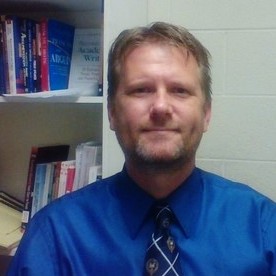
Michael Jeffress, he/him
1. What is your experience with Critical Disability Studies, Disability Activism, Disability Justice, lived disability experience, or leadership within the disability?
I am neurodiverse (ADHD), parent of two disabled children who passed away in their 20s. I have published one title and edited three others in Routledge’s Interdisciplinary Disability Studies Series, was lead editor of _The Palgrave Handbook of Disability and Communication_, and been an active member of the Disability Issues Caucus of the National Communication Association since 2008. I have been active in the adapted sport of Power Soccer and served as the Director of Communications for FIPFA-the international governing body of the sport. During my ABD sojourn and prior to landing my first full-time faculty position, I worked as a supported employment specialist for 1.5 years. In this role, I advocated in the local community and networked with businesses to create job opportunities adults with disabilities referred for employment by the North Carolina Department of Vocational Rehabilitation Services. I performed job assessment interviews with clients and provided job coaching, and on-site training and support. I am also a series editor for a new book series to be launched in 2026 by Palgrave MacMillan titled, Critical Perspectives on Disability, Communication, and Culture.
2. What is your experience with Critical Disability Studies, Disability Activism, Disability Justice, lived disability experience, or leadership within the disability?
Prior to transitioning to academia in 2008, I was a senior pastor of diverse churches in AR, TX, and VA for 15 years. Although I have not been religious for years, I had valuable experience in this role, overseeing numerous boards, budgets, and staff. In academia, I have sat on over a dozen committees, including being elected president of faculty senate. I have regularly attended and presented at conferences, including National Communication Association, Pac-Rim International Conf. on Disability and Diversity, American Public Health Association, and the Accommodations section of Medical Education Learning Specialists.
3. What do you hope to achieve on the SDS Board that you want membership to be aware of?
It is a challenging time–especially given the current political climate in the US, as well as the rise of AI and open-access and predatory publishing that are creating both opportunities and challenges for graduate students and young scholars. The SDS Board needs visionary leadership to respond. I would hope to inspire and facilitate strategic planning to ensure SDS can move forward with a robust community to provide resources and mentoring as well as remaining a premiere outlet for publishing and disseminating CDS scholarship.
TREASURER
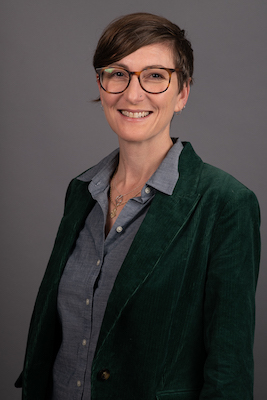
Lesley Siegel, she/her
1. What is your experience with Critical Disability Studies, Disability Activism, Disability Justice, lived disability experience, or leadership within the disability?
As a queer Epileptic born in the 1970s, activism and advocacy have not only been a stance, but a necessary means to a personal ends. As a Dis/ability Studies scholar I am deeply interested in Crip Punk and the way out-of-school spaces and movements promote Disability Activism as well as the contributions of Disabled Activists to radical music and arts spaces. As a professor in a traditional school of education, I continually challenge the dominate narrative of teaching folks to ‘fix’ disability, while myself navigating the overly ableist and heteronormative systems of higher education.
2. What is your experience with Critical Disability Studies, Disability Activism, Disability Justice, lived disability experience, or leadership within the disability?
I am a longtime worker bee! I work(ed) on various committees connected to professional organizations, mostly those aligned with LGBTQ folks and communities, as well as work in my local community. I’ve had roles organizing university events and smaller roles at professional events.
3. What do you hope to achieve on the SDS Board that you want membership to be aware of?
I am fortunate to be in a professional position with time to give and saw there is a need for a treasurer. I’ve managed grant budgets, am a fast learner, a math nerd, and haven’t yet been audited on my taxes, so I hopefully I meet the minimum qualifications for treasurer!
MEMBER-AT-LARGE
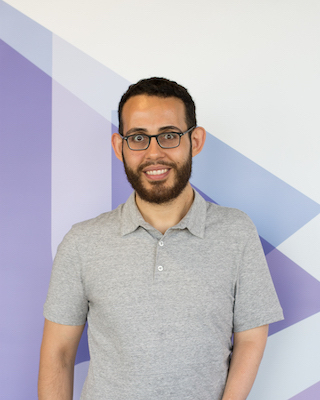
Ludovico Boratto, he/him
1. What is your experience with Critical Disability Studies, Disability Activism, Disability Justice, lived disability experience, or leadership within the disability?
I engage with Critical Disability Studies both through my lived experience and my research, which focuses on designing algorithmic systems that are attentive to the needs of minoritized and marginalized communities. I am also part of the “Disability in Computing” group, which has been an important space of exchange and advocacy.
2. What is your experience with Critical Disability Studies, Disability Activism, Disability Justice, lived disability experience, or leadership within the disability?
I bring experience from several leadership roles in nonprofit and academic communities. I currently serve as vice-president of the User Modeling Board (ACM UMAP) and have been general chair for four ACM conferences. I’m regularly involved in organizing ACM RecSys, ACM UMAP, and various international Web-related events.
3. What do you hope to achieve on the SDS Board that you want membership to be aware of?
I hope to contribute to SDS during this important phase by supporting its mission, helping ensure continuity and sustainability, and strengthening connections across disciplines and communities engaged in disability scholarship and activism.
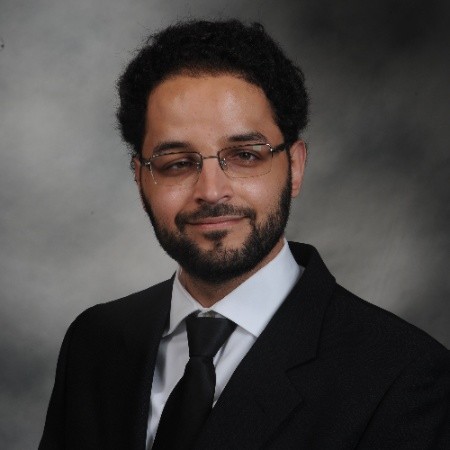
Randy D. Colón, he/him
1. What is your experience with Critical Disability Studies, Disability Activism, Disability Justice, lived disability experience, or leadership within the disability?
My experience in Critical Disability Studies, activism, and leadership includes extensive participatory research as a Ph.D. candidate at UIC, where my work emphasizes disability justice, housing equity, and policy engagement. I’ve co-chaired UIC’s Chancellor’s Committee subcommittee on Disabled Student Experiences, served as a governor-appointed chair of the Illinois Emergency Management Agency’s disability advisory subcommittee, and completed the Disability Lead Fellowship. As a blind scholar and advocate, I actively integrate lived experience with disability into all aspects of my work.
2. What is your experience with Critical Disability Studies, Disability Activism, Disability Justice, lived disability experience, or leadership within the disability?
My nonprofit leadership includes serving as a Board Member for CHANGE Illinois, where I provided perspectives on disability justice and equity in governance. I’ve chaired the Independence & Autonomy Subcommittee of Illinois Emergency Management Agency’s Access and Functional Needs Advisory Committee, co-hosted community town halls focused on post-institutional transition needs, and led volunteer community assessments for Chicago Street Medicine. Additionally, I’ve presented extensively at conferences such as EDUCAUSE, Accessing Higher Ground, and the International Street Medicine Symposium, focusing on accessibility and inclusive policy practices.
3. What do you hope to achieve on the SDS Board that you want membership to be aware of?
On the SDS Board, I hope to help assess and build on existing strengths, including SDS’s interdisciplinary approach, community connection, and disability justice advocacy. I want to engage members actively in defining what SDS’s role and goals should be moving forward. Additionally, I aim to identify opportunities for SDS to adapt or expand activities to better meet the evolving needs of its membership. Finally, I’d like to collaborate on strategic planning to ensure SDS’s sustainability, relevance, and growth.
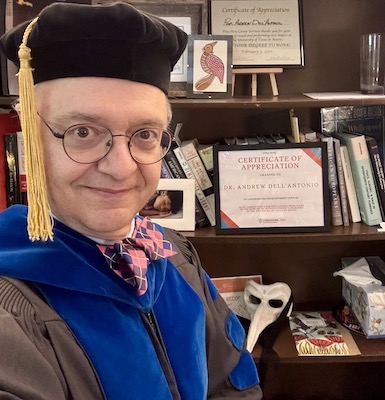
Andrew Dell’Antonio, he/him
1. What is your experience with Critical Disability Studies, Disability Activism, Disability Justice, lived disability experience, or leadership within the disability?
Cognizant of disability culture and activism and critical disability studies, aware enough of the intersectionally marginalized roots of disability justice to know that I can be supportive of its messages and aims but never claim I am contributing to it. ADHD and GAD diagnosis, involved in neurodiversity activism internationally for more than a decade; significant record of dedication to pedagogy of disability and access advocacy at the University level; substantial mentorship of junior disabled scholars both outside and inside the academy; some publications on disability culture and pedagogy; current co-chair of the American Musicological Society Disability Study Group; more information here.
2. What is your experience in nonprofit leadership and involvement, including but not limited to Board, committee, and conference involvement?
Former member at large of the American Musicological Society Board of Directors, have also served in a wide variety of committees and regional groups in that and other academic Societies, elected and appointed, leading and following. Former Associate Dean of undergraduate studies at my University; current leader of an 11-member departmental subgroup and responsible for substantial administrative and logistical coordination and organization. See service section of CV if useful.
3. What do you hope to achieve on the SDS Board that you want membership to be aware of?
While I am well aware that no professional society needs more cis straight white men in positions of authority, I am committed to supporting and mentoring junior scholars and getting out of their way (as my own mentor and friend Cal Montgomery has said, “real leaders pass the mic”). I think I have useful coordination and leadership experience to offer and I am determined to collaborate well and learn as much as I impart. I have been encouraged to step forward to this opportunity by people I trust in the disabled / disability culture community and whose trust in me I cherish. I welcome SDS members to read about me and see / hear me speak at my personal web site link above before considering my candidacy for an at-large position on the SDS Board.
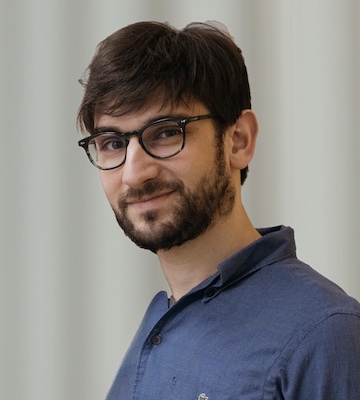
Eric A. Deutsch, JD, Ph.D
1. What is your experience with Critical Disability Studies, Disability Activism, Disability Justice, lived disability experience, or leadership within the disability?
I am an educator (Ph.D., Univ. at Buffalo), attorney (J.D., Emory Law), and mediator. My lived experience, acquiring multiple disabilities in my twenties following ischemic and hemorrhagic strokes, shaped both my life and my commitment to CDS. The disabled community I found during rehabilitation continues to shape how I engage with the world and informs my scholarship, teaching, and practice. At UB, I specialized in Critical Disability Studies, Disability History, and Mad Studies. I have taught at San Francisco State and UB, served on the Disability History Association’s Governance Committee, and regularly present on disability rights and justice, disability identity, culture, rights, and issues of access and equity for legal and professional organizations.
2. What is your experience with Critical Disability Studies, Disability Activism, Disability Justice, lived disability experience, or leadership within the disability?
My nonprofit leadership includes serving on the Governance Committee of the Disability History Association, where I contributed to policy development, membership initiatives, and board governance matters, including election processes, executive roles, and succession planning. I organized academic conferences throughout graduate school, including leading the University at Buffalo’s annual Plesur Conference, where I managed logistics, outreach, and programming. As an attorney, I advised nonprofit organizations, including transitional housing providers, on governance and compliance through pro bono service.
3. What do you hope to achieve on the SDS Board that you want membership to be aware of?
I aim to help sustain and grow SDS as a space for rigorous, inclusive, and accessible disability scholarship and activism. I am committed to fostering crucial dialogue about disability, social inequities, and the inherent value and dignity of disabled people’s lives. I believe in the transformative power of CDS to challenge entrenched systems of oppression. My priorities include strengthening accessibility, expanding interdisciplinary collaboration, and deepening SDS’s connections with community-based disability movements. I also hope to contribute to a board culture grounded in equity, accountability, and collaboration, guided by the principle that nothing about us without us.
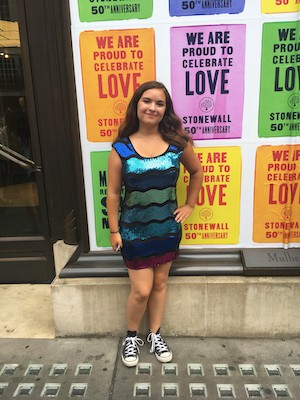
Emily Doffing, she/they
1. What is your experience with Critical Disability Studies, Disability Activism, Disability Justice, lived disability experience, or leadership within the disability?
I’m a disability cultural center coordinator with four years of disability research experience, eight years of disability activism, and four years of related nonprofit work experience. I’m immensely grateful for the opportunities to support students related to disability community, academics, food assistance, basic needs, and mental health. For example, as a Mental Health Peer Educator, I co-organized University of Kansas’s (KU) first peer support groups for the psychologically disabled, LGBTQIA+, and/or first-generation students utilizing my lived experiences in these communities. In addition, I’ve organized a Participatory Action Research study where disabled graduate student participants are co-researchers for social change.
2. What is your experience in nonprofit leadership and involvement, including but not limited to Board, committee, and conference involvement?
I created accessible marketing materials for the Disability, Advocacy, Research, and Networking (DARN) website, national email listserv, and social media accounts, which resulted in 250 individuals registering for DARN’s first disability conference. I have raised shared anti-ableist social justice initiatives and disability research recommendations to researchers through eight posters, twelve oral presentations, and three lectures. My intellectual expertise was shaped by my Graduate Certificate in Applied Disability Studies, published book about disabled college students’ experiences, and Master’s disability thesis. I’ve taken leadership roles at three non-profit internships: the 988 lifeline, the Barons Court Project, and KU’s Disability Inclusion Mentoring Circles.
3. What do you hope to achieve on the SDS Board that you want membership to be aware of?
I would be interested in building more collaboration between DARN and DREAM for events, resources, and social media posts dissemination. I am excited to upscale my change efforts with Society for Disability Studies’ emphasis on intersectional and interdisciplinary approach to disability culture, community, and pride. I am hopeful for further disabled student and ally coalition-building across the nation. I am enthusiastic about the many beautiful possibilities and ideas for us to imagine, initiate, and inspire. I want to continue to work out of accessible kinship, care webs, and radical love (Acevedo et al., 2022; Piepzna-Samarasinha, 2018).
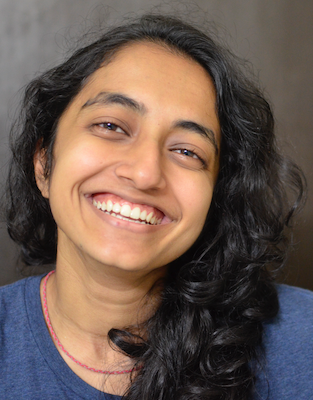
Kim Fernandes, they/them
1. What is your experience with Critical Disability Studies, Disability Activism, Disability Justice, lived disability experience, or leadership within the disability?
As a researcher, writer and educator, my work and life are shaped by a personal and scholarly attention to disability as orientation. My research engagements within critical disability studies have been forged by my lived experiences with disability and my commitment to organizing from a disability justice lens. Many of these commitments have also been shaped by a global attention to the varied experiences of disability beyond North America. Should I be elected as a member-at-large to the SDS Board, I will bring this range of experiences with/in disability to bear on the development of a rich, sustained professional community.
2. What is your experience with Critical Disability Studies, Disability Activism, Disability Justice, lived disability experience, or leadership within the disability?
Across the length of my academic career, I have held various nonprofit leadership positions. As one example, I was recently appointed as an alumni member of Teach for India’s advisory board. In addition to nonprofit leadership, I have organized several workshops and academic meetings. I have also held positions on committees at the level of the university and of other professional academic organizations. Taken together, I see these involvements not as service or a requirement of the profession, but rather as an important way for us to build and sustain the scholarly communities that we would like to inhabit.
3. What do you hope to achieve on the SDS Board that you want membership to be aware of?
As a disability studies scholar, I have benefitted significantly from engaging with SDS at every stage of my career. I look forward to continuing the Society’s work in supporting engaged disability studies scholarship. In particular, as a board-member-at-large, I am excited to have the opportunity to continue SDS’s work with a focus on supporting and developing opportunities for students and early career researchers. In addition to ensuring expanded participation opportunities for all members of the broader SDS community, I am eager to develop capacity-building initiatives and partnerships that will ensure the Society continues to have strong global scholarly ties.
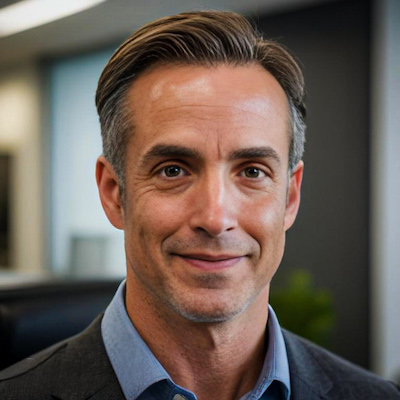
Dr Eric Fishon
2. What is your experience with Critical Disability Studies, Disability Activism, Disability Justice, lived disability experience, or leadership within the disability?
I currently serve as Board President of a domestic violence agency, where I lead strategic initiatives focused on equity, safety, and community outreach. Previously, I was Director of Field Marketing for TD Bank, organizing large-scale events and national conferences with a focus on accessibility and community engagement. My background includes governance, budgeting, and team-building in nonprofit and corporate sectors. I’ve also participated in academic conference planning and served on committees advancing disability justice.
3. What do you hope to achieve on the SDS Board that you want membership to be aware of?
I aim to strengthen SDS’s commitment to intersectional disability justice by fostering inclusive scholarship, expanding mentorship for early-career disabled scholars, and enhancing accessibility across all SDS platforms. I will advocate for partnerships with marginalized communities, centering voices often overlooked in academic discourse. I also hope to increase engagement from interdisciplinary field, and to broaden the reach and relevance of SDS’s mission through online channels like forums, blogs, and other social media opportunities that can highlight our members and their work along with continuing to make a difference in all communities and come up in keyword searches as subject matter experts.
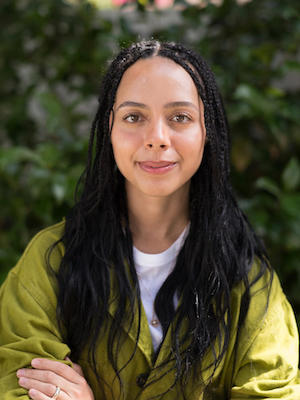
Kelsey Henry, she/her
1. What is your experience with Critical Disability Studies, Disability Activism, Disability Justice, lived disability experience, or leadership within the disability?
I am a chronically ill, interdisciplinary historian whose work centers race, dis/ability, and age as shifting categories that are intimately mediated by medicine and technoscience. I have formidable leadership experience in disability studies, serving as Assistant Editor of Disability Studies Quarterly and co-host of the Disability History Association Podcast, while also developing courses on “Black Disability Studies” and “Disability and Aging in the Scientific Imagination.” My current book project provides a history of “developmental disability” as a racial category, exploring how the conflation of Blackness and developmental disorder became integral to the operations of white supremacy in the US.
2. What is your experience with Critical Disability Studies, Disability Activism, Disability Justice, lived disability experience, or leadership within the disability?
As a member of the Organization of American Historian’s Committee on the Status of LGBTQ Historians and LGBTQ Histories since May 2023, I have awarded dissertation prizes, organized panels, and prepared statements condemning the Trump administration’s attacks on LGBTQ rights. I also founded the Wesleyan Doula Project, a student-run Connecticut collective that partnered with Planned Parenthood to offer free abortion support services. While I’ve held leadership positions in disability studies, including co-organizer of Yale’s Disability Studies Working Group, guest editor of DSQ’s special issue on race and disability (43.1), and those listed above, I am ready for a new challenge.
3. What do you hope to achieve on the SDS Board that you want membership to be aware of?
I am eager to plan events that connect and support other early career scholars in disability studies. Many of us trained and teach at institutions without robust disability studies networks. SDS is uniquely positioned to facilitate mentorship and the intergenerational exchange of disability studies wisdom between junior and senior scholars, both of which are urgently needed. I want to facilitate collaboration between SDS and the Disability History Association, primarily to advance emergent dialogues on racial histories of disability. As an historian of aging, I also want to see SDS nurture scholarship at the intersections of age studies and disability studies.
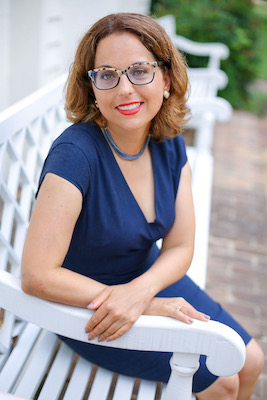
Rachel McDonald Hurford, she/her
1. What is your experience with Critical Disability Studies, Disability Activism, Disability Justice, lived disability experience, or leadership within the disability?
2. What is your experience with Critical Disability Studies, Disability Activism, Disability Justice, lived disability experience, or leadership within the disability?
3. What do you hope to achieve on the SDS Board that you want membership to be aware of?
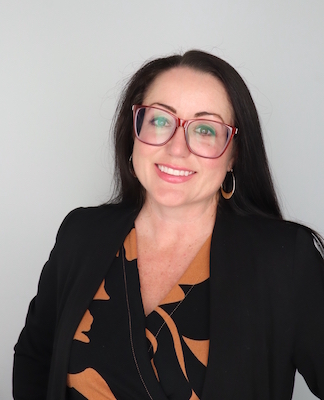
April Johnson
1. What is your experience with Critical Disability Studies, Disability Activism, Disability Justice, lived disability experience, or leadership within the disability?
I have been a scholar of disability politics for nearly a decade, publishing work on disability and political participation. My work offers me a chance to disseminate information about the impact of having a disability on one’s engagement and experience with government and public policy. These publications, conference, and invited talks also allow me to provide prescriptive pathways to reduce the well-know disability voting gap.
2. What is your experience with Critical Disability Studies, Disability Activism, Disability Justice, lived disability experience, or leadership within the disability?
I have been active as an executive board member of the Georgia Political Science Association and as a former Social Science Division Councilor within the Council of Undergraduate Research. I helped to organize the annual National Council of Undergraduate Research conference, which hosts research from approximately 4,000 students, when it was held at my university several years ago. My leadership within conferences consists of regularly serving as a panel chair and/or discussant, specifically at the annual meetings of the American Political Science Association, the Midwest Political Science Association, the Northeast Political Science Association, and the Western Political Science Association.
3. What do you hope to achieve on the SDS Board that you want membership to be aware of?
I would like to not only continue the study of disability politics, but as a board member within the Events & Conferences division I would like to grow the organization’s footprint on public policy and local laws and regulations. Specifically, I would like to create events that encourage members of the public, lawmakers, and advocacy groups to attend. It is in these spaces where scholars and non-scholars alike can share ways in which to enfranchise, build community, and develop healthy outcomes for those with disabilities.
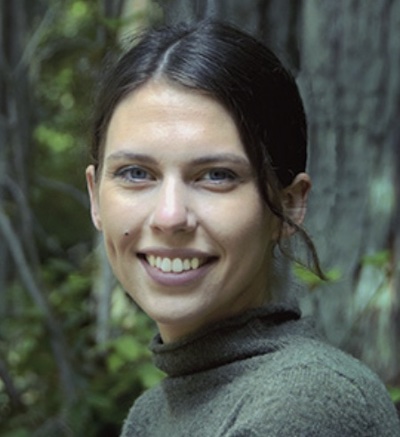
Katie Kinkopf, she/they
1. What is your experience with Critical Disability Studies, Disability Activism, Disability Justice, lived disability experience, or leadership within the disability?
I was first introduced to Disability Studies by Tobin Siebers as an undergraduate, who also helped me understand my own lived experiences with chronic illness and disability. Since that time (over a decade ago), I completed a PhD in Anthropology with dissertation research at the nexus of DS, CDS, and bio/archaeology. I’ve also written articles on CDS and biological anthropology/archaeology, and have a forthcoming book joining CDS, DJ, and archaeology. I have ongoing research in CDS/DS and identify with CDS as one of my primary areas of research and scholar-activism.
After joining the faculty at Cal Poly Pomona in 2020, I served as co-president of the Access and Disability Alliance with Dr. Shayda Kafai for five years, where we helped bring Disability Justice activism and organizing to our campus by organizing public events, working closely with student activists, running monthly meetings, managing the financial component of the group, and administering scholarships.
2. What is your experience with Critical Disability Studies, Disability Activism, Disability Justice, lived disability experience, or leadership within the disability?
I am one of many founders of the Disabled Archaeologists Network (DAN) and have been the lead organizer for the “Disability Initiative” with the American Association of Biological Anthropologists (AABA). For both of these organizations I have worked closely with other disabled people to ensure our access needs are met and our voices are heard. My work with AABA included service on the Executive Committee as the Early Career Liaison for two years, where I helped craft changes to the organization to make it more accessible for disabled members and ran annual meetings and workshops. As a faculty member I have served on numerous committees (including standing and ad hoc), both related to disability organizing and related to general administration for just over 5 years. I bring expertise in conference organizing, committee work (making ideas happen), and in fundraising and grant-writing.
3. What do you hope to achieve on the SDS Board that you want membership to be aware of?
The Society for Disability Studies is not obsolete. SDS was the first place I felt comfortable coming out publicly as a disabled and chronically ill scholar; and it offered the kind of community I could not have found within my “home discipline” – Anthropology. I believe that SDS was and should continue to be a space where disabled scholars can thrive and build community, since many of us come to this space from hostile disciplines. Now more than ever, SDS needs to embrace its members with transparency and clear communication.
Disabled scholars are facing public humiliation, backlash, and political instability within academic and public spaces. And yet, we know our DJ work and scholarship are necessary. We cannot continue “business as usual” — we must meet the moment. Through my service I hope to figure out practical and transparent ways to make SDS work for our members, while staying grounded by DJ values.
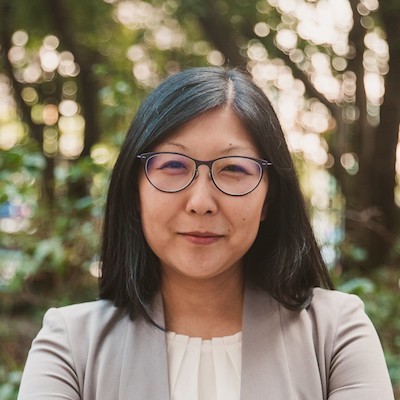
Shirley Lin, she/her
1. What is your experience with Critical Disability Studies, Disability Activism, Disability Justice, lived disability experience, or leadership within the disability?
I research and teach critical race theory, work law, and contracts as an Associate Professor at Brooklyn Law School. My research projects develop DisCrit approaches in the constructions of race, disability, and gender within law. As a legal scholar, my work is countercurrent to much of the existing literature by foregrounding the theory social movements produce and elevating the need to develop (or restore) actionable, organizational-level approaches to systemic discrimination. Thus, disability scholarly communities have been an intellectual home. In addition to being first-gen, I identify as a person with a disability, navigating multiple needs from immunocompromised environments. Prior to academia, I worked as a plaintiff-side advocate and litigator in civil rights and workers’ rights; even earlier, I was a director of community organizing for immigrants’ rights in New York post 9/11.
2. What is your experience with Critical Disability Studies, Disability Activism, Disability Justice, lived disability experience, or leadership within the disability?
I have more than a decade of experience in committee, conference, and organizational governance. My earlier career in labor and employment law, representing entry-level workers and executives alike, allowed me to reflect on systems and institutional design in diverse settings. For six years, I served on the Board of Directors of a non-profit workers’ center, Adhikaar for Human Rights & Social Justice, with a term as board Secretary. For the primary U.S. convening within legal academia, the Association of American Law Schools (AALS), I have served on the Section on Labor Relations and Employment Law to develop panel programming, and am currently serving a term as Chair through our Jan. 2026 annual conference.
3. What do you hope to achieve on the SDS Board that you want membership to be aware of?
Many of the organizations I have been affiliated with were low on resources while advocating for highly marginalized communities. Yet, these were not barriers to innovating or being responsive in our efforts. I remain committed to modeling inclusive, transparent, and courageous organizations. On the SDS Board, I hope to listen, develop leadership, and grow a community empowered by disability justice principles to map and build new infrastructure. These are critical times for people with disabilities, civil society, and academia to redirect our future.
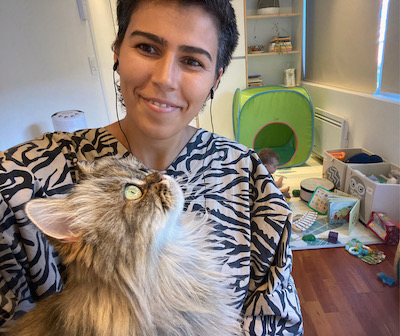
Essya M. Nabbali
1. What is your experience with Critical Disability Studies, Disability Activism, Disability Justice, lived disability experience, or leadership within the disability?
Caring and creating meaningful care communities has been salient to my personal and professional lives. Formally schooled in critical disability studies and deeply committed to a Mad ethos as social justice work, I strive to honour experiential knowledges and being in solidarity with liberation struggles led by, and uplifting, systematically targeted peoples. I have carved out opportunities in teaching (at both the undergraduate and graduate levels across institutions), publications (peer reviewed and invited chapters), conference presentations, public scholarship and activism to help foster necessary discussions of power, control, and the historical and ongoing presence of eugenics within. This has carried me from Toronto to Vancouver, Canada, and onwards to Accra, Ghana, at a critical moment of national reckoning with gender-based violences, the implementation of a Mental Health Act, and scale-up of consumer, survivor, ex-patient movement(s).
2. What is your experience with Critical Disability Studies, Disability Activism, Disability Justice, lived disability experience, or leadership within the disability?
Accountable to intersectional anti-oppression principles, I have over a decade of experience in project management, including program and policy evaluation, as well as governance of academic and social profits, both locally and abroad. Among them, I was greatly involved in a performance evaluation of Supervised Consumption and Overdose Prevention Sites with one of the regional health authorities of British Columbia, Canada. I have served the succession planning of the Vancouver Women’s Health Collective and its space enhancement for/with non-binary, queer, and trans folks. I would be recruited by the Vancouver Status of Women to help it break entirely from provincial funding towards a more situated, empowered, and therefore sustainable agency. And I have provided similar such supports to the City of Vancouver’s Women’s Advisory Committee, Women’s & Gender Equity Committee at the Federation of Post-Secondary Educators of BC, and Elizabeth Bagshaw Society.
3. What do you hope to achieve on the SDS Board that you want membership to be aware of?
I look to the opportunity of the SDS Board to leverage my experiences, training, and leadership in knowledges translation and systems change, and inevitably, enrich my network of likeminded folk and advance shared goals, promoting diversity and the expansion of our social contexts. SDS has been apart of my world since my earliest graduate studies and I would love to give back in the ways that I am skilled to do, including social profit stewardship. It bears mentioning that I have been deeply committed to, and centring, the recommendations of the Truth & Reconciliation Commission of Canada, as well as the Canadian National Inquiry into Missing and Murdered Indigenous Women and Girls, and 2SLGBTQQIA peoples. Having been raised in a francophone household (and raising bilingual children), je serai ravie de correspondre avec vous également en français.
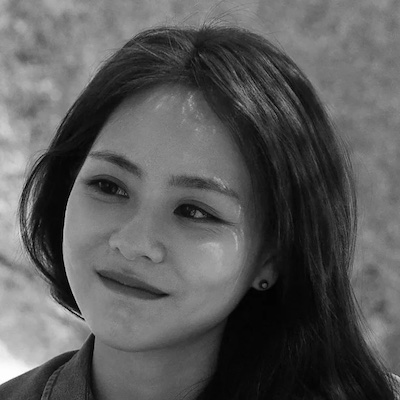
Junghun Oh
1. What is your experience with Critical Disability Studies, Disability Activism, Disability Justice, lived disability experience, or leadership within the disability?
My work examines the intersection of disability and gender in East Asia. From a postcolonial perspective, I examine how disability policy shapes the everyday lives of disabled people and their caregivers by governing the meaning-making networks through which disability is defined and interpreted. I grew up with an older sister with complex disabilities in Korea. With limited state support and a lack of public understanding, my family had to create our own forms of care and access to resources. These lived experiences sharpened my awareness of how disabled lives are shaped by material and epistemic infrastructures and continue to guide my commitments to disability justice. My work is grounded in a sustained engagement with disability justice principles, centering interdependence, collective access, and equitable knowledge production. As part of the SBS Board, I hope to contribute to the collective reimagining of disability scholarship by amplifying perspectives in global discourses.
2. What is your experience with Critical Disability Studies, Disability Activism, Disability Justice, lived disability experience, or leadership within the disability?
Although I have not yet held formal leadership roles in nonprofit organizations, I have been actively involved in supporting public-facing events centered on disability justice. In my fieldwork, I have collaborated with parent advocacy groups to co-develop events that highlight the lived experiences and political agency of people with disabilities and their families. These experiences have taught me the importance of sharing stories, building trust, and co-creating accessible spaces for dialogue. I bring with me an ethic of relational collaboration grounded in intersectionality, decolonial thought, and critical inclusion. By serving on the SDS Board, I hope to deepen these practices by contributing to a shared infrastructure of accountability, care, and transformative scholarship within disability studies.
3. What do you hope to achieve on the SDS Board that you want membership to be aware of?
If elected to the SDS board, I hope to contribute to broadening the epistemic and geographical scope of disability studies by bringing non-Western, postcolonial, and transnational perspectives. As a scholar whose work engages with the entangled politics of disability, gender, and care in non-Western contexts, I am deeply committed to fostering dialogue across cultural, linguistic, and geopolitical differences. I aim to support SDS in building programming and initiatives that create space for scholars, activists, and community members whose work emerges outside of dominant paradigms—those working in local and everyday registers of disability justice. This includes promoting cross-regional and multicultural events, highlighting underrepresented regions and methods, and advancing inclusion as a relational practice grounded in reciprocity and critical reflection. I would be honoured to contribute to SDS’s vision for building a more inclusive future for disability scholarship and advocacy.
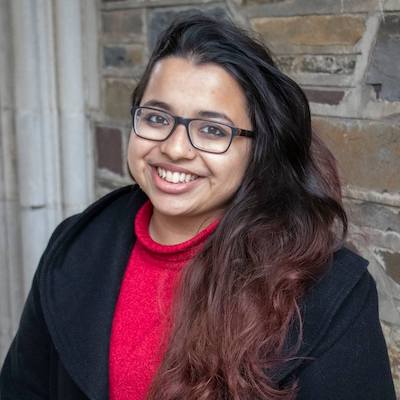
Jiya Pandya, they/she
1. What is your experience with Critical Disability Studies, Disability Activism, Disability Justice, lived disability experience, or leadership within the disability?
I have been involved in the field for the past 8 years as an early-career scholar. An alum of Vanderbilt University’s Critical Design Lab and Remote Access Archive, I published a Crip COVID syllabus and have written on transnational disability studies for DSQ and Lateral. This year, I am co-editing an upcoming special issue on Peripheral Crip Critique in DSQ. As a prior board member (Director of Membership) of the Disability History Association (DHA) and Chair of the Board of the non-profit Asian Americans with Disabilities Initiative (AADI), I have navigated administrative tasks and built a cross-institutional disability network both within and beyond academia while also promoting values of access, equitability, and justice.
2. What is your experience with Critical Disability Studies, Disability Activism, Disability Justice, lived disability experience, or leadership within the disability?
I was on the Boards of two non-profits, one focused on academic disability studies and the other on broader disability community. In the former, as a member of the DHA, I published our quarterly newsletter and ran and managed our membership drives. I also supported other Board members in programming and recruitment. As Chair of the Board of AADI, I connected the executive team to disability networks within and beyond the academy. I also oversaw the organization during a period of immense upheaval, managing internal team dynamics while building networks to ensure the organization’s sustainability and streamline its vision.
3. What do you hope to achieve on the SDS Board that you want membership to be aware of?
My goal as an at-large member of the SDS Board is to bring my commitments to access, transnational and racial justice, and transparency to SDS programming and publication. I hope to support the current Board in building an environment of trust, care, and equitable labor within the organization. Second, I am invested in reinstating SDS (especially the SDS conference) as an accessible space where early career scholars and advocates of disability justice can find resources, community, and mentorship. Finally, I would also like to support the current Board in continuing to develop sustainable communication practices with our membership.
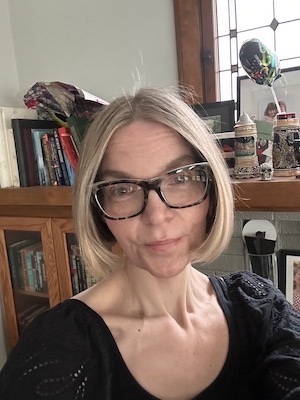
Ramona Schwartz-Johnston, she/her
1. What is your experience with Critical Disability Studies, Disability Activism, Disability Justice, lived disability experience, or leadership within the disability?
As a doctoral student, my focus was on Disability and Equity in Education. I continue that work as an adjunct professor and as an independent researcher and consultant. My dissertation and subsquent foci include centering disability in research and the research process, promoting voices of disabled collaborators in the research process, and in advocacy and allyship. I am currently working with international colleagues on gaslighting of families whose neurodiverse children are unable to attend (or are forced out of) the school setting.
I am the mother of a neurodiverse child and of a teen with Cerebral Palsy who does not speak. The way in which they navigate their worlds influences how I teach, parent, and observe how others treat and interact with them. My parental role has also influenced my teaching and consulting work as I teach about AAC, ableism in communication and technoableism. Additionally, I support teachers to promote UDL and AT usage to promote access to curriculum.
2. What is your experience with Critical Disability Studies, Disability Activism, Disability Justice, lived disability experience, or leadership within the disability?
I do not have any previous nonprofit leadership experience as a Board member. I am part of the TASH Early Career Network and the Communication Committee. I have also attended and participated as a presenter in the ICQI conference and TASH conference during multiple years and/or as part of multiple sessions. I believe in conference attendance and in providing support to SDS community members in terms of access to and promoting their work, ideas, and advocacy.
3. What do you hope to achieve on the SDS Board that you want membership to be aware of?
As an SDS Board member, I would like create mentorship opportunities for publication, research, and expanding the intersectional and diverse voices of SDS members and Disability Justice and Critical Disability Scholars. My hope is that through greater communication of our distinct and unique perspectives and stories we can deepen our connections as a members and to those outside the SDS membership family.
GRADUATE STUDENT REPRESENTATIVE
Moira Armstrong, they/them
1. What is your experience with Critical Disability Studies, Disability Activism, Disability Justice, lived disability experience, or leadership within the disability?
Critical disability studies is one of my areas of focus academically; I am particularly interested in the COVID-19 pandemic, histories of eugenics, and the overlap of queer and disability experiences. I am involved in disability activism at the university as a member of the student Disability Justice Coalition and a member of the Rutgers AAUP-AFT Disability Justice Working Group, and outside of the university as a mask bloc organizer. I identify as disabled, immunocompromised, and COVID-conscious, which informs both my research and activism.
2. What is your experience with Critical Disability Studies, Disability Activism, Disability Justice, lived disability experience, or leadership within the disability?
I am currently a discussant for the National Council on Public History’ Accessibility, Disability, and Public History Working Group and a member of the Oral History Association’s Diversity Committee. I am also involved in AAUP-AFT at Rutgers; I just started a term as secretary/treasurer of the Newark Chapter Leadership Committee and I am involved in the Disability Justice Working Group. In the past, I served as a representative on the Chapter Leadership Committee and as a department representative for AAUP-AFT and on the Northeast Popular Culture Association’s Programming Committee.
3. What do you hope to achieve on the SDS Board that you want membership to be aware of?
I’ve really appreciated the recent SDS events; I think especially in the current political climate, having space to connect both academically and socially through virtual platforms is important and I would love to contribute to planning more of these. Also, as I’m running for graduate representative, I would love to connect more with other grad students about what kind of support SDS can provide, especially as most of us are in programs that are not explicitly disability studies-oriented. I’m also interested to see the results of the recent SDS survey and incorporate the needs of the community into these goals.
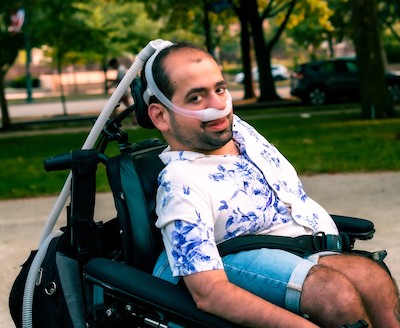
Jaggar DeMarco, Ph.d he/him
1. What is your experience with Critical Disability Studies, Disability Activism, Disability Justice, lived disability experience, or leadership within the disability?
I am a complexly disabled individual and have been disabled most of my entire life. I have a form of muscular dystrophy and I am a full time power wheelchair and ventilator user. For me, disability is not something that I can come in and out of when it benefits me professionally or personally. I am confronted with the messy yet wonderful experiences of living as a disabled person. I start here to say that my scholarship, activist work, and artistic practices are all informed by my experience as a disabled person. In addition, I believe in, work with, and critically interrogate DJ perspectives, not just as lip service. Notably, I am currently a member of Hook&Loop which is an accessible artist collective led by disabled artists in the Philadelphia region. It is rooted in a queercrip, DJ praxis, and for me, it provides a concrete means of expressing these commitments.
2. What is your experience with Critical Disability Studies, Disability Activism, Disability Justice, lived disability experience, or leadership within the disability?
While pursuing my undergraduate and masters degree I was involved with various disability activism nonprofits. I was a policy intern for the National Council on Independent Living. I supported conference planning for NCIL Annual Conference and specifically worked on improving youth engagement. I was able to network with activists and organizations that were doing the hard work. It is easy to talk in abstractions about disability activism and organizing, but actually doing the work provided me with key insights on sustainability, cross-movement solidarity, and the care work that is integral to these movements. Currently, as a graduate research associate at Temple’s Institute on Disabilities (IOD), I serve in a community facing position, working to identify employment related needs and improve occupational access for disabled people, and I serve on various health and sexuality initiatives that center disabled people and their lived experiences.
3. What do you hope to achieve on the SDS Board that you want membership to be aware of?
As a complexly disabled emerging academic in graduate school, I would like to highlight the difficulties of finding a job in academia when it is impossible to “pass” as able bodied. I want to use my platform to discuss the experiences of disabled individuals pursuing careers in academia, and to help disabled people operate securely within academic structures. My work seeks to privilege the voices of disabled community members. This includes qualitative research that may take the form of interview, ethnography, and participatory action research (PAR). In general, these projects take time and resources to complete. I hope to create more space for this type of research which prioritizes ethics of care for both researcher and participant. Proclaiming the radical politics of “crip time” should be more than just lip service, it should be a policy position in the academy. I want to encourage SDS to create more designated space for humanistic scholarship that prioritizes community engagement.
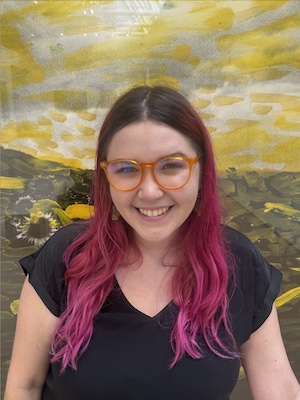
Court(ney) Felle, they/them
1. What is your experience with Critical Disability Studies, Disability Activism, Disability Justice, lived disability experience, or leadership within the disability?
I am a multiply disabled graduate student, including lived experience of chronic illness, dynamic physical disability, and neurodivergence. I am in my second year of an MA/PhD program in Writing, Rhetoric, and Literacy and Disability Studies at the Ohio State University. My research combines crip theory, narrative studies, and rhetorical analysis, especially where crip theory overlaps with analyses of neoliberal surveillance, climate catastrophe, and critical intersex studies.
Prior to being at Ohio State, I managed a nonprofit program for young adults with rare disabilities and was involved in legislative advocacy around healthcare access, anti-discrimination protections, and social insurance safety nets. Now, I’m primarily involved in antizionist and dyke organizing, which informs my work in disability studies.
2. What is your experience with Critical Disability Studies, Disability Activism, Disability Justice, lived disability experience, or leadership within the disability?
I trained young adults to serve on nonprofit boards, so I am familiar with the general expectations and responsibilities of organizational boards. I am part of the executive board of two graduate student groups at Ohio State: the Disability Studies Graduate Student Association (President) and Rhetorical Studies at Ohio State (Treasurer). I have attended a variety of in-person academic and nonprofit (primarily rare disease) conferences and am familiar with organizing access for large events.
3. What do you hope to achieve on the SDS Board that you want membership to be aware of?
As someone entering the field of Disability Studies, I have found the solidarity and collaboration of people under the umbrella of “Disability Studies” extremely important to defining my own identity and research as a scholar. I hope to protect this essential access to community amidst precarity and fascist repression. I would especially love to focus on expanding the Society for Disability Studies and making new members feel welcome, especially those who are early-career, multiply marginalized, non-tenure track, and/or in non-traditional home departments.

Maria Susan Guarino, she/her
1. What is your experience with Critical Disability Studies, Disability Activism, Disability Justice, lived disability experience, or leadership within the disability?
I am a disabled student and activist. I came to Critical Disability Studies through one article shared one day in a feminist methods class. From there, I pursued #DisabilityTwitter for over two years, soaking in the generous knowledge and scholarship of disability scholars, until entering a graduate program that supported me in formally studying Disability Studies in Education. I have moved within various artist, activist, and leadership spaces, and I feel that my embodied experience of difference continuously informs my academic, artistic, and activist commitments. Disability, to me, is a generative source of knowledge. It constantly interrupts what we think we know and how we believe we should relate to the world.
2. What is your experience with Critical Disability Studies, Disability Activism, Disability Justice, lived disability experience, or leadership within the disability?
Currently, I am a co-leader of the Diverse and In(ter)dependent Student Alliance for Bodyminds Educators and Dreamers (D.I.S.A.B.L.E.D.) at my University. I also served as the Campaign Manager for Jeremy Dubs, the first (openly) disabled City Councilor in Northampton, MA. (He is now running for his second term!) I have also participated in and organized panels around disability experience and scholarship at various conferences and artistic spaces, such as the Northeastern Modern Language Conference (NeMLA), the American Educational Studies Association (AESA), and the New England Visionary Artists Museum, as well as my own university. I feel that these experiences, among others, have allowed me to engage in collective access work and think/feel with disabled perspectives in both academic and community spaces.
3. What do you hope to achieve on the SDS Board that you want membership to be aware of?
I’m excited to help facilitate access to academic spaces in ways that blur the lines between “scholarly” and “artistic” knowledge. I want Critical Disability Studies to feel welcoming to thinkers and makers who may not identify as “scholars” but are actively contributing to the field through community work, creative practices, and lived experience. My approach to access is artistic and collaborative. I spend a lot of my time engaging with practices like captioning, writing image descriptions, and liaising with others to facilitate distinct access needs, because I understand access as artful, and I genuinely enjoy working to co-create accessible conditions in creative ways. Through this art, exciting and unique possibilities emerge for how we gather, communicate, and learn together.
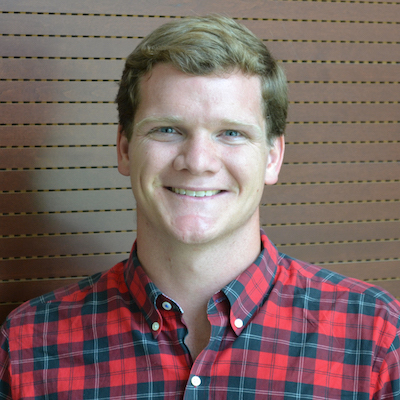
Nick Johnson, he/him
1. What is your experience with Critical Disability Studies, Disability Activism, Disability Justice, lived disability experience, or leadership within the disability?
Currently, I have been focusing on disability studies as it relates to literature and performance of the Sahel and the Southern Cone, and prior to this, I worked on blindness representation in global fiction leading up to 1990 and tuberculosis in early 20th century global fiction. I live with an invisible disability that has informed my intellectual engagement and my daily efforts at consciousness-raising around disability.
2. What is your experience with Critical Disability Studies, Disability Activism, Disability Justice, lived disability experience, or leadership within the disability?
I have worked for several nonprofits in the past, community-based and education- or publication-oriented, which gives me an understanding of the active role board members adopt to advance the mission through event planning, goal achievement, budget monitoring, and a responsive presence. I also organized a fundraiser as a young adult to call attention to alienation and other struggles disabled people face in their daily lives, which taught me to dive in to have my desired impact.
3. What do you hope to achieve on the SDS Board that you want membership to be aware of?
The SDS has expanded the possibilities for disability-oriented scholarship and advocacy, and I would hope to continue that by advancing events such as outreach webinars (to promote disability-inclusive organizing for unaffiliated community groups, etc.) and collective case studies (where all present would discuss a disability-related cultural issue to share resources and expertise). My dedication to projects of diversifying critical disability studies through future SDS conferences goes without saying, and I would be a collaborator with anyone hoping to similarly impact this society and beyond.
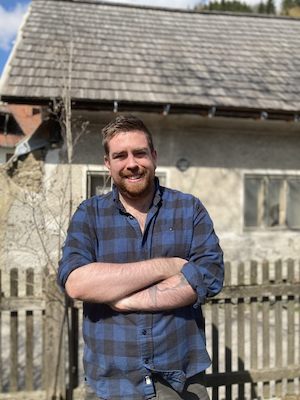
andrew david king, they/them
1. What is your experience with Critical Disability Studies, Disability Activism, Disability Justice, lived disability experience, or leadership within the disability?
Hi! I’m a white, queer, fat, disabled, chronically ill/pained, and neurodivergent (autistic) scholar, poet, and activist living on occupied Huchiun/Tuibun Lisjan (Ohlone) land. My experiences living with these identities—and with the bullying and ostracization often directed at them—in a world that at best constitutively marginalizes them and at worst seeks to eradicates them inform basically the entirety of my life, art, and critical work. These experiences have also led me to conceive of disability, from the beginning, not as an isolated or special interest but as a general, foundational framework for everything from social relations to scholarly methodology.
I come from a broadly humanistic background, having earned my BA in Philosophy and English before going on to earn an MFA in poetry and graduate certificates in Book Arts (focusing on tactile technologies and pedagogy) and the Public Digital Humanities (focusing on archives and accessibility, and thinking about how scholars and activists can bring inclusion to the forefront of their work rather than treating it as an accessory). My MA in Philosophy thesis explored the philosophical and political bases of multimodal access in art museums—investigating, in other words, the stakes and fraughtness of facilitating access to artworks across sensory modalities and distinct bodyminds. Some of this research recently appeared in a special issue of the Journal of Arts & Communities.
I’ve advocated for disabled folks across three continents and as many institutions of higher education, and have served in formal (committees, employment) and informal (union RNF, mutual aid) roles to advocate for Disability Justice. I founded UC Berkeley’s Townsend Working Group in Critical Disability Studies and Medical Humanities, and have published articles and book chapters on disability pedagogy, pain studies, disability and racialization, transdisciplinarity and crip theory, and capitalism’s production of disability. I currently serve as sub-editor for the open-access International Journal of Disability and Social Justice. My current doctoral research, which has been supported by a grant from the UC Humanities Research Institute, asks about the relationship between formations of disability in 19th– and 20th-century American literature and conceptions of citizenship and labor; I seek to contribute to the growing understanding of the imbrication of these former categories with the category of disability. Driving my research is the conviction that uncovering the cultural genealogy of the concept of disability—especially when it appears in places where it isn’t explicitly named—can aid Disability Justice in the present.
2. What is your experience with Critical Disability Studies, Disability Activism, Disability Justice, lived disability experience, or leadership within the disability?
From 2022-2024, I directed the Disabled Students Advocacy Project (DSAP) at UC Berkeley’s nonprofit Graduate Assembly, working to achieve policy changes and increase resources for our community. My partners included local organizations, the Disability Cultural Community Center, faculty and staff, and disability studies scholars, some of whom I brought to campus for visits. As DSAP Director, I founded UC Berkeley’s first institutionally-sponsored support group for disabled, chronically ill, and neurodivergent students, which I facilitated in the 2023-2024 academic year and then handed off to the Graduate Division to continue running while I developed other projects. I’ve organized conferences and presented disability-related work at the MLA and other venues. I’m a senior editor at the nonprofit, independent literary journal ZYZZYVA and an editor, with indigenous writer Mary Ladd, of The Long COVID Reader. In 2024, I was an MLA Public Humanities Incubator awardee for my work on prototyping a public humanities project focusing on disability and the ongoing pandemic.
My work as Director of the Disabled Students Advocacy Project and as senior editor at ZYZZYVA has made me broadly aware of the access-related, logistical, social, communicational, and institutional challenges that nonprofits—especially small, precariously-funded nonprofits—face. If elected to the board of SDS, I’d look forward to bringing these lived, practical experiences to bear on the Society’s crucial mission. Furthermore, organizing UC Berkeley’s Townsend Working Group in Critical Disability Studies and Medical Humanities has helped me to appreciate how constantly-evolving formations of disability, disabled life, and disabled justice always are, and to remain alert to outdated assumptions or conceptions I might be clinging to.
3. What do you hope to achieve on the SDS Board that you want membership to be aware of?
First of all, thanks for considering my candidacy! I’d be honored to have the opportunity to contribute to the Society by representing disabled, ill/chronically ill, and neurodivergent students/junior scholars/scholars-in-training the best way I know how: by listening. So I hope, first and foremost, to be receptive, responsive, and respectful—to learn from my peers and colleagues, on and beyond the board, about their needs and dreams for the Society and for DSQ. I’d especially work to ensure that the socioeconomically precarious position of disabled graduate students, and the conditions in which they labor, isn’t forgotten, as well as to remain conscious of the ways in which our understandings of disability might be made less northern hemisphere/Anglophone-focused, and the intellectual debts of North American disability studies acknowledged.
In keeping with my desire to refute the idea that disability is a niche concern, I often think about, and quote, something Audre Lorde said during a Q&A after a reading she’d given in Germany. An audience member had asked her who the “you” in one of her poems was, and she replied that it included everyone—that no one is safe. Hers was a humbling reminder that precarity is all our heritage in late capitalism, and it’s in that spirit that I hope to contribute my service to the SDS board.
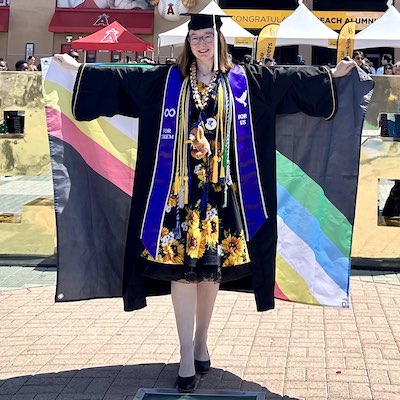
Jessica King, she/they
1. What is your experience with Critical Disability Studies, Disability Activism, Disability Justice, lived disability experience, or leadership within the disability?
As one person out of millions, my disabled identity has been challenged by social judgment, professional inaccessibility, and academic barriers. Being a neurodivergent and chronically ill woman, it is my lifelong aspiration to deconstruct the ableism that enables and disables me. Specializing in disability culture and disability justice during my undergraduate career, I conducted independent research and joined community psychology research labs; I’ll expand my specializations to the multiple levels of systemic ableism, (in)accessibility, and identity intersectionality (gender/sexuality, socioeconomic class, race, etc.) as I transition into the Disability Studies graduate program at CUNY School of Professional Studies.
2. What is your experience in nonprofit leadership and involvement, including but not limited to Board, committee, and conference involvement?
Beyond student organizations, I’ve contributed to nonprofits about equitable education and disability advocacy. In organizations like Step Up Tutoring and Pathways to Independence, I developed programs to promote free academic support for marginalized communities. At Words for the World, I coordinated regular meetings and assigned tasks to host virtual disability pride celebrations. More recently, I joined DREAM and The Orion Fund to create access-centered content and connect with the disabled student community, increasing my competence as the founder the forthcoming nonprofit, White Dove Disability Advocacy. In this organization, I will support all operations and initiate community-driven projects for disability empowerment.
3. What do you hope to achieve on the SDS Board that you want membership to be aware of?
In the United States, disabled people make up the largest marginalized community, and yet these experiences are systematically restricted in academic, executive, and creative leadership. Now more than ever, it is critical that we have disabled disability activists to preserve our human rights, dependent on authentic representation, equitable healthcare, and social acceptance. As politicians and corporations lobby to deconstruct our resources, services, and networks, I will fight to deconstruct their influence and oppression. While my disabled narrative can’t portray a universal experience or perspective, my advocacy efforts will pursue the inclusion of all disabled stories for a holistic disability justice.
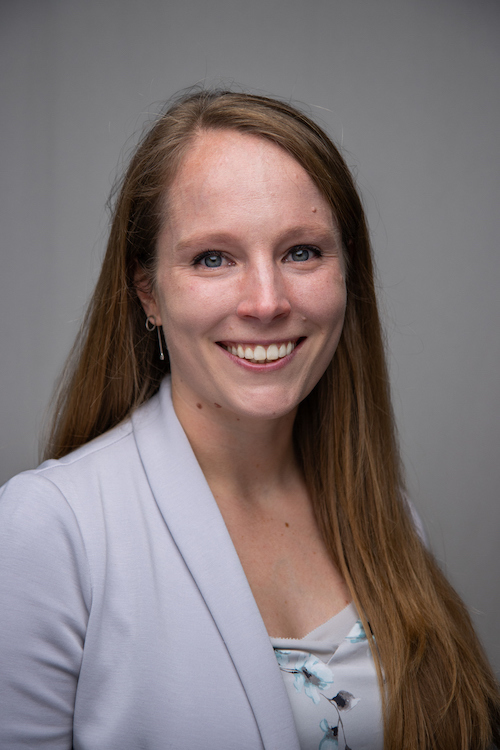
Mary Landry, she/her
1. What is your experience with Critical Disability Studies, Disability Activism, Disability Justice, lived disability experience, or leadership within the disability?
I am a doctoral student specializing in critical disability studies, rhetoric, composition, and sound studies within the English department at Texas A&M University. Inspired by my personal experience with Usher’s Syndrome—a genetic condition affecting hearing and eyesight—my research currently centers on critically engaging the rhetoric of hearing aids, as well as broader questions around access, passing, and crip theory. In conjunction with these research interests, I have also served as the accessibility specialist on the Texas A&M team for the Digital Design for Student Success (D2S2) project in collaboration with the Texas Higher Education Coordinating Board (THECB).
2. What is your experience with Critical Disability Studies, Disability Activism, Disability Justice, lived disability experience, or leadership within the disability?
I served as a committee member for the Lufkin Boys & Girls Club, which provides programs to support youth development. This service involved work such as assisting with fundraisers (like a community auction night) or partnering with local businesses to sponsor events for the youth (like ice cream socials). I also served as Team Coordinator for Second Helpings, a group of volunteers that redistributes leftover food from local school cafeterias to organizations who serve people in need. In this role, I organized volunteers into groups, managed schedules, sent reminders for service days, and served as a substitute when needed.
3. What do you hope to achieve on the SDS Board that you want membership to be aware of?
As I’ve worked through 90+ texts for my preliminary exams this year, I’ve repeatedly encountered the influence of SDS—whether in Sami Schalk’s recounting of SDS dances or in Alison Kafer and Susan Burch’s edited collection emerging from SDS 2006. Each time, I’ve wished I had a story of my own to tell about this community. With no formal disability studies program at my university, I’ve been a self-taught scholar since my Master’s with mentorship from adjacent fields. I hope to support SDS’s post-pandemic rebuilding and help reach others like me—those learning from the edges, longing for connection.
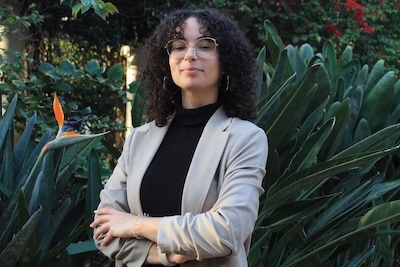
Tailyn Osorio, they/them
First and foremost, I am an autistic and ADHD, queer, gender nonconforming, Cuban American and Puerto Rican person. These intersecting identities are central to how I move through the world and how the world has responded to me. I’ve often existed in spaces that felt confusing—or that were confused by me. I was never quite right for the world, and the world was never quite right for me. These early experiences of misalignment and exclusion deeply shaped my understanding of disability, justice, and identity, and ultimately led me to the work I do today.
I earned my Bachelor’s degree in American Sign Language Interpreting in 2020. Since then, I’ve worked as an interpreter in educational and community settings, as well as in video relay services. Collaborating with Deaf individuals across diverse contexts inspired me to pursue a Master’s degree in Applied Anthropology, where I focused on the experiences of Deaf university students and how institutional policies shape their access, participation, and sense of belonging. I completed that degree in 2023 and transitioned directly into the doctoral program in Applied Anthropology.
As a doctoral student, I’ve contributed to several projects, including one with an adaptive sailing program where we explored disability joy and interdependence through recreational water activities. These experiences continue to ground my commitment to disability justice, lived experience, and community-based research. Currently, my dissertation focuses on the lived experiences of Deaf and autistic youth in Barbados. My research investigates how these youth engage in informal learning, form identity and belonging, and navigate disability in everyday life. I also examine national disability and education policy reforms, analyzing how families and community-based organizations respond to and resist state practices. This project, which will be supported by a Fulbright Fellowship from Fall 2025 to Fall 2026, is situated within critical understandings of disability shaped by colonial legacies and plantation pedagogies. My work is guided by a deep belief in the power of lived experience, interdependence, and the radical imagination of disabled youth.
2. What is your experience with Critical Disability Studies, Disability Activism, Disability Justice, lived disability experience, or leadership within the disability?
While I don’t yet have extensive formal leadership experience within nonprofits, I have been deeply engaged in organizing and supporting community-based and academic initiatives with similar values and goals. From 2021 to 2024, I worked as an administrative and research assistant, and later as a communications coordinator, for a public health initiative focused on providing accessible information to Spanish-speaking communities. In this role, I helped coordinate events, managed social media platforms, and supported administrative operations—all with the aim of bridging language and access gaps in health communication.
In 2024, I co-founded the Latin Graduate Student Organization at my university, which was created to foster mentorship, peer support, and professional development for both undergraduate and graduate Latinx students. This included planning on-campus events, building partnerships with community professionals, and hosting workshops centered on navigating academia and professional life as Latinx scholars. That same year, I also collaborated with the American Anthropological Association to plan a fundraising event for a local historical organization during their annual conference. I was responsible for selecting the catering and music, coordinating logistics, and helping shape the event agenda to reflect the goals of both the local organization and the broader conference. These experiences have strengthened my skills in community engagement, event planning, and culturally responsive communication—foundational tools I hope to continue developing in future nonprofit and leadership work
3. What do you hope to achieve on the SDS Board that you want membership to be aware of?
If selected to serve on the SDS Board, I hope to bring a perspective rooted in lived experience, interdisciplinary research, and community engagement. As an autistic and ADHD, queer, gender nonconforming, Cuban American and Puerto Rican scholar, my approach to disability is shaped by intersectionality, collective care, and a commitment to justice. I come to this opportunity not as someone with all the answers, but as someone eager to listen, collaborate, and contribute to the ongoing work SDS has done to challenge ableism in all its forms. I want membership to know that I view this as an act of service—to support our shared goals and make space for others like me who may not have always seen themselves reflected in academic leadership. Ultimately, I hope to continue building on the work SDS has done to foster a vibrant, justice-oriented, and radically inclusive community—one where graduate students are not only included but actively shaping the future of the field.
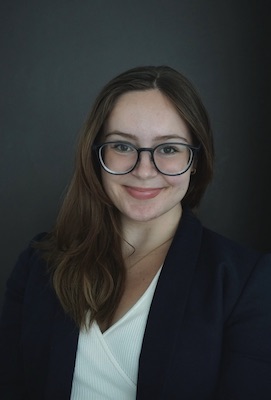
Gabrielle Pittinger, she/her
1. What is your experience with Critical Disability Studies, Disability Activism, Disability Justice, lived disability experience, or leadership within the disability?
Throughout my studies at UofT, I examined the social and cultural constructions of disability, particularly as they intersect with ableism, nationalism, colonialism, sexism, and neoliberalism—leading to presentations at seven conferences and three published papers. I served as co-president of the Trans, Disability and Sapphic Knowledges (TDSK) Conference and Journal, and was awarded the 2024 CGDS Undergraduate Award for Disability Studies for my academic work and accessibility efforts. Guided by my lived experiences of disability and medicalization, I am now pursuing a master’s at UBC, focusing on the political subjectivity within disability justice movements.
2. What is your experience with Critical Disability Studies, Disability Activism, Disability Justice, lived disability experience, or leadership within the disability?
At the University of Toronto, I was a founding member of the Trans, Disability and Sapphic Knowledges (TDSK) Conference and Journal, creating a province-wide platform to amplify underrepresented undergraduate voices. I led the marketing team from 2022 to 2023 and served as co-president from 2023 to 2024—continuing to oversee marketing/promotions and develop informational events for student presenters. Under my leadership, the conference tripled its audience in one year and gained recognition across Ontario for its accessibility and inclusivity. This experience strengthened my skills in nonprofit leadership, accessibility coordination, and collaborative organizing within academic and activist communities.
3. What do you hope to achieve on the SDS Board that you want membership to be aware of?
If selected as a graduate student representative, I will focus on creating and fostering interdisciplinary dialogue, highlighting emerging research and activism, and providing practical resources for mentorship and professional growth. From my experience at the University of Toronto and University of British Columbia, many students are eager to engage with disability studies but lack community or exposure to the field’s breadth. I aim to design events focused on topical research and partner with interdisciplinary departments to reach students and faculty not yet involved, expanding the reach and impact of disability scholarship and activism across diverse academic spaces.
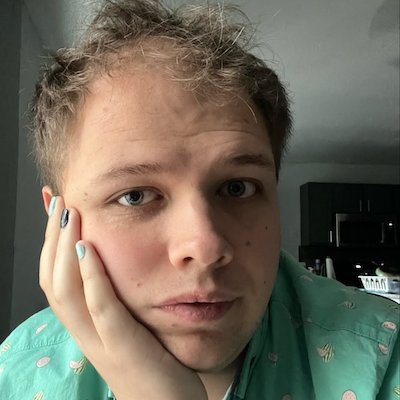
Weston Leo Richey, they/them
1. What is your experience with Critical Disability Studies, Disability Activism, Disability Justice, lived disability experience, or leadership within the disability?
As a PhD candidate, my research increasingly contributes to and allies with Critical Disability Studies. Because I have lived experience as a queer scholar and a multiply disabled scholar, including chronic joint injury, pain, and several psychological and emotional disabilities, I am invested in queercrip work. I am a co-organizer of a reading group in UT Austin’s English department that focuses on reading speculative fiction and related theory with a concern for minoritized identities, including disability. I have also advocated for disabled students on the Graduate Climate Committee, a student committee for my department which worked to protect students’ wellbeing.
2. What is your experience with Critical Disability Studies, Disability Activism, Disability Justice, lived disability experience, or leadership within the disability?
While I do not have experience in nonprofit organizations, I have considerable experience as both a student representative in departmental service committees as well as in organizing a student reading group. In addition to my service on the Graduate Climate Committee at UT, I served as a member of the committee tasked with recommending a new chair for UT Austin’s English department, a student member of the department’s Graduate Studies Committee (consisting of all graduate faculty), and a student member of the department’s professional development funding subcommittee.
3. What do you hope to achieve on the SDS Board that you want membership to be aware of?
My scholarship has brought me into community with many other disabled scholars and scholars invested in disability and disability activism, and I have found these connections to be among the most enriching and empowering as I continue both my academic and life journey. I hope that by serving on SDS’s Board, I will contribute to the Disability Studies community in increasingly tangible ways for our shared empowerment. I also view serving on SDS’s Board as providing me with experience in helping a professional association.
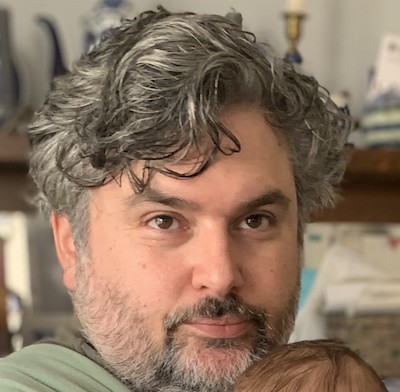
Keith Rosenthal, he/they
1. What is your experience with Critical Disability Studies, Disability Activism, Disability Justice, lived disability experience, or leadership within the disability?
My experience with disability and critical disability studies is both personal and political-intellectual. I have a psych disability, as does my brother and mother. I recently obtained a master’s degree in Disability Studies and am currently a PhD candidate in History with a focus on the political economy of disability. However, I have also engaged in a lot of my own research and writing on disability theory, politics, and history, outside of academia and in a more activist capacity. In 2019, Haymarket Books published a book I edited titled “Capitalism & Disability: Selected Writings by Marta Russell.”
2. What is your experience with Critical Disability Studies, Disability Activism, Disability Justice, lived disability experience, or leadership within the disability?
For the past 25 years I have been active in building socialist and various social justice organizations and movements. During this time, I have been involved in various coalitions and campaigns both as a member and in positions of official leadership (steering committees, etc.). In this capacity I have built conferences, forums, and teach-ins, as well as protests, public outreach, and mobilizations. Above all, this experience has taught me the importance of being both firm in principles and flexible in collaboration.
3. What do you hope to achieve on the SDS Board that you want membership to be aware of?
I have always seen disability as primarily a political and social concern with attendant personal ramifications. Especially given the present context within the U.S. and the world, the living conditions and struggles of disabled people are becoming much more dire and politicized. I aim to advance the importance of disability as an organizing and theoretical framework through which coalitions of consciousness and struggle can be manifested. To this end, I would foreground the importance of understanding disability in conjunction with such phenomena as racial and gender oppression, class and economic division, imperialism and nationalism, ecology and war, and so on.
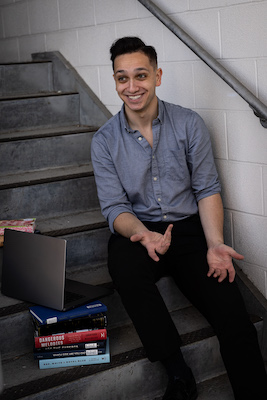
Eric Whitmer, they/he
1. What is your experience with Critical Disability Studies, Disability Activism, Disability Justice, lived disability experience, or leadership within the disability?
I am a musician turned academic by my own experience of disability. After developing a chronic pain condition while attending music school, I became motivated to implement Disability Justice in music. Critical disability studies is, and continues to be, a way of understanding my own experience and how it relates to broader social and historical constructions of disability. I now proudly identify as a disabled AuDHD scholar and musician, and work on projects that crip music and musical institutions.
2. What is your experience with Critical Disability Studies, Disability Activism, Disability Justice, lived disability experience, or leadership within the disability?
As a historian and ethnographer, I have developed a deep knowledge for the historical legacy of the nonprofit organization in conjunction with my praxis related experience with nonprofits. I have been a board member of multiple nonprofits, and have worked in nonprofit administration for eight years. In my time as administrator and board member, I was responsible for capital fundraising, grant writing, strategic planning, and donor recruitment projects. Within scholarly societies, I have served on planning committees for multiple conferences and worked as a graduate representative for other scholarly societies.
3. What do you hope to achieve on the SDS Board that you want membership to be aware of?
While serving as a graduate student representative to the SDS Board, I hope to develop programs to support graduate students pursuing disability studies across institutions. I see a variety of possible opportunities including peer-mentorship sessions, social events, and professional development workshops. I am eager to build community within these networks and lend my research knowledge and professional experience in nonprofits to help build sustainable systems for SDS to help facilitate public scholarship and activism from its members.

